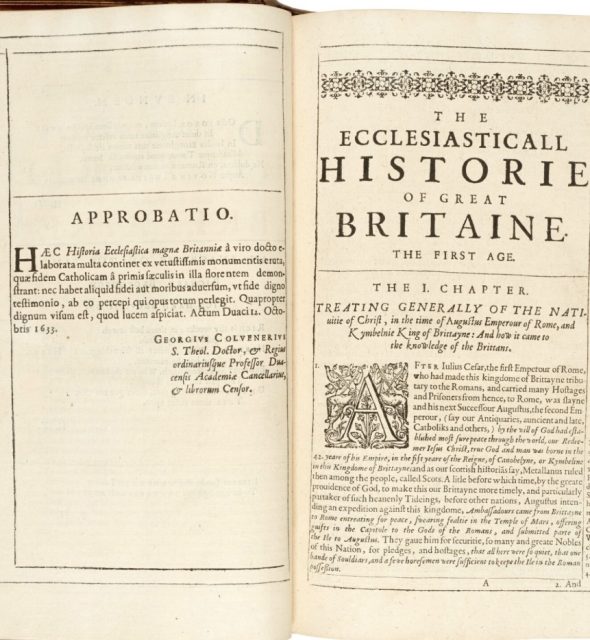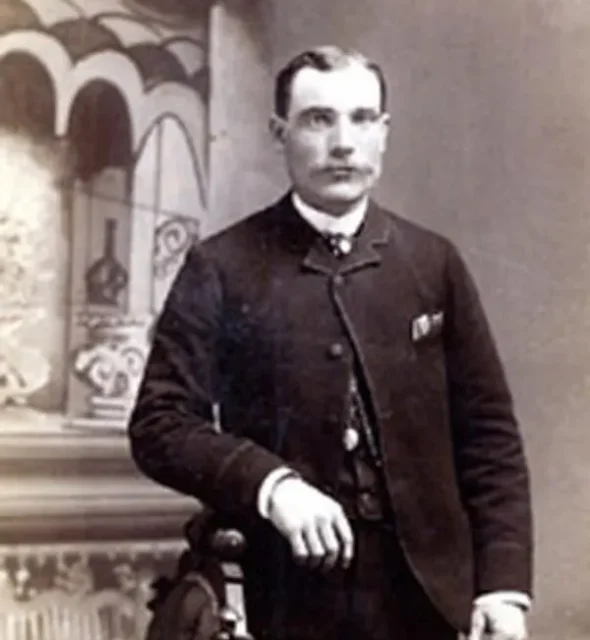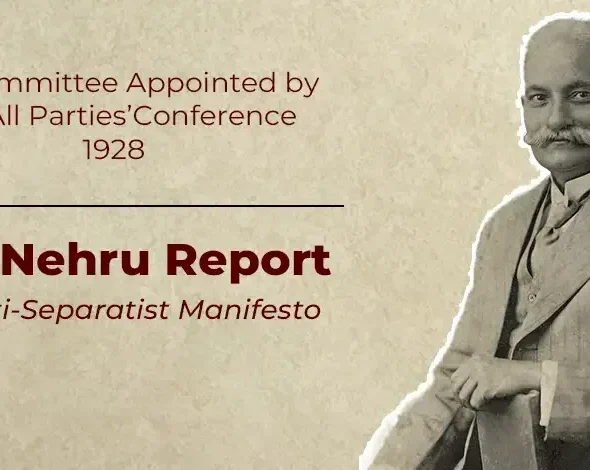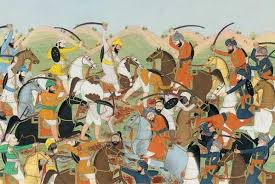
BROUGHTON PAPERS are official and private papers of Sir John Cam Hobhouse (Lord Broughton) in numerous bound volumes in the British Library. Lord Broughton, British administrator, who served as President of the Board of Control of the East India Company from 1835-41 and again from 1846-52, was responsible for the Home Government`s major policy decisions on the Punjab and the Sikhs.

CUNNINGHAM, JOSEPH DAVEY (1812-1851), the first British historian of the Sikhs (his A History of the Sikhs was published in London in 1849), was the eldest of the five sons of Allan Cunningham, a noted poet and playwright. Born at Lambeth on 9 June 1812, Joseph had his early education in private schools in London where he showed such a marked aptitude for mathematics that his father was advised to send him to Cambridge. But as the young boy was more keen on becoming a soldier, a cadetship in the East India Company`s service was procured him through the good offices of Sir Walter Scott.
DIAL DAS, son of Gaura and grandson of the celebrated Bhai Bhagatu, lived at Bhuchcho, now in Bathinda district of the Punjab, at the time of Guru Gobind Singh`s journey through those parts in 1706. At the village of Bhagu, Dial Das took the rites of amrit at the hands of Guru Gobind Singh and received the name of Dial Singh. There after the Guru and the Sikhs partook of the food he had brought for them. It so happened, says the Sakhi Pothi, that a few more Sikhs arrived after all the food had been consumed. Dial Singh sold his gold ring and bought fresh victuals for the newcomers,
GOBIND SINGH, GURU (1666-1708), the tenth and the last Guru or Prophet teacher of the Sikh faith, was born Gobind Rai on Poh sudi 7, 1723 Bk/22 December 1666 at Patna, in Bihar. His father, Guru Tegh Bahadur, the Ninth Guru, was then travelling across Bengal and Assam. Returning to Patna in 1670, he directed his family to return to the Punjab. On the site of the house at Patna in which Gobind Rai was born and where he spent his early childhood now stands a sacred shrine, Takht Sri Harimandar Sahib, one of the five most honoured scats of religious authority (takht, lit. throne) for the Sikhs.

NEHRU COMMITTEE REPORT AND THE SIKHS. Constitutional reforms introduced under the Government of India Act, 1919, did not satisfy the Indian public opinion which continued to press for a fully responsible government in India. The Act itself contained a provision that after ten years a statutory commission would be appointed to review its working. A commission consisting of seven members of British Parliament, with SirJohn Simon as chairman, was constituted in November 1927 to survey the political situation in India.








